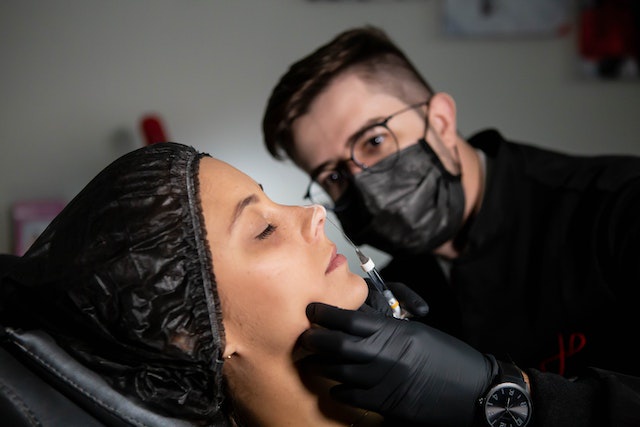Introduction
Rhinology is a subspecialty of otolaryngology (ENT) focused on diseases of the nose and paranasal sinuses. Sinusitis is the most common condition treated by nose specialists. If you are suffering from chronic sinus infections, it is important to find the root cause of your symptoms. The nose has a complex structure which separates it from sinus cavities located in the skull. Nasal polyps are a common condition affecting the nasal cavity that can be treated by ENT specialists. A deviated septum can interfere with breathing and sleep, causing significant distress for patients who experience this condition often suffer from other conditions such as asthma or allergies
Rhinology is a subspecialty of otolaryngology (ENT) focused on diseases of the nose and paranasal sinuses.
Rhinology is a subspecialty of otolaryngology (ENT) focused on diseases of the nose and paranasal sinuses. Rhinologists are trained in many areas, including:
- Microscopy and cytology
- Diagnosis and treatment planning for sinusitis, allergic rhinitis, chronic nasal polyps, middle ear disease, infections and other conditions throughout your head-and-neck area
Sinusitis is the most common condition treated by nose specialists.
Sinusitis is the most common condition treated by nose specialists. It is an inflammation of the sinuses, which are small hollow spaces located above your nose and behind your eyes. The most common cause of sinusitis is a viral infection that causes swelling and pressure in these areas. Sinusitis can also be caused by allergies, or a deviated septum (a wall between two halves of your nose).
Sinusitis causes pain and discomfort as well as difficulty breathing through your mouth or nose. It may cause you to lose sleep because of pain when lying down at night—especially if you have trouble breathing through both nostrils at once
If you are suffering from chronic sinus infections, it is important to find the root cause of your symptoms.
If you are suffering from chronic sinus infections, it is important to find the root cause of your symptoms. If your doctor suspects an underlying condition, he or she may order imaging tests such as CT scans and MRIs. The doctor will perform a physical exam and may also order blood tests in order to determine if there is any underlying medical problem that could be causing the chronic sinusitis.
If all of these tests come back normal and show no signs of cancerous tumors or other serious disorders like diabetes mellitus (a disease in which sugar levels are too high), then they would likely prescribe antibiotics as well as nasal sprays like steroids (for example) rather than surgery due to cost effectiveness concerns alone."
The nose has a complex structure which separates it from sinus cavities located in the skull.
The nose has a complex structure that separates it from sinus cavities located in the skull. The nose is made up of the nasal septum, the nasal turbinates and its cavity. The septum separates a small chamber called the nasal cavity from another larger one known as the middle meatus (the opening at the end of your nostrils). Each side of this partitioned space contains two small lobes called turbinates which filter air as it passes through them on its way up to your mouth.
Nasal polyps are a common condition affecting the nasal cavity that can be treated by ENT specialists.
Nasal polyps are noncancerous growths in the nose. They can block the nasal passages, resulting in breathing problems and other symptoms.
Nasal polyps are usually treated with medication or surgery, but they're not contagious.
A deviated septum can interfere with breathing and sleep, causing significant distress for patients.
A deviated septum is a small hole in the nose that allows air to flow from one side of the nasal cavity to another. This can cause blocked breathing, which often leads to snoring and other sleep disturbances.
A deviated septum is usually diagnosed by a CT scan or an MRI that shows how much space there is between each nostril and how far apart they are from each other. The doctor will also look at whether there’s any inflammation around where your upper lip meets your nose (the tip of your nose). When combined with other symptoms like rhinitis (inflammation), sinusitis (infection) or allergies, this can lead to chronic breathing problems — especially if you have persistent congestion leading up to these events as well as after them
The best way for treating conditions affecting the nose and paranasal sinuses is to consult with an ENT specialist who specializes in rhinology.
In short terms, Rhinology Seattle WA is the study of the nose and paranasal sinuses. It involves looking at the structure, function, biology and pathology of these areas. The best way for treating conditions affecting the nose and paranasal sinuses is to consult with an ENT specialist who specializes in rhinology.
Conclusion
Rhinology is a subspecialty of otolaryngology (ENT) focused on diseases of the nose and paranasal sinuses. It can be difficult for patients to find an ENT specialist who specializes in rhinology, but with the help of this guide we hope to ease some of those frustrations. If you are suffering from chronic sinus infections or other conditions affecting your nose and paranasal sinuses, it is important to find the root cause of your symptoms. The best way for treating these conditions is by consulting with an ENT specialist who specializes in rhinology.


No comments yet